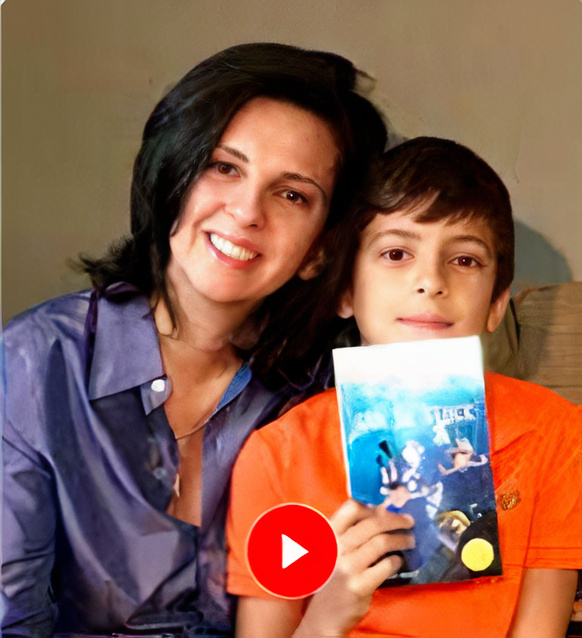About Us
OUR STORY
From a very early age, my son had a passion for books. Unfortunately, reading did not come naturally to him. In 2015, at age six, he was diagnosed with Dyslexia. With training, he soon began reading simple words and sentences. One night, he picked up Hop on Pop by Dr. Seuss. He read the entire 160+ words over and over, then asked for a chapter book.
I googled, talked to experts, teachers, tutors and parents to find low-level/high-interest books. Others were in search of these books, too, but they did not exist. So I began to write for my son; he began to read. And Project Simple Words was born.
In “Overcoming Dyslexia”, Sally Shaywitz, M.D., professor in Yale University School of Medicine and Co-Director of the Yale Center for Dyslexia and Creativity, talks about many children whose childhood joys were extinguished by dyslexia. The story of Caitlyn’s seventh birthday party Shaywitz tells in her book is the one I will always remember.
“All through the party, Caitlyn kept asking “When do I get to blow my candles out?” … [her mom] entered with a cake.. Caitlyn ran over to the table, climbed up on a chair, and bent over the cake. She closed her eyes tightly, concentrated very hard, and then blew out all the candles. Then she ran up the stairs to her bedroom and closed the door. [Her mom] found Caitlyn on her bed with her favorite storybook, Good Night Moon, on her lap. Tears streamed down her face. “You said I would get any wish I wanted, but you were wrong. My wish didn’t come true.” She still could not read any of the words on the page.”
Caitlyn’s story touched my heart and gave me the strength to bring Simple Words Books™ to life. Thank you, Dr. Shaywitz for sharing it.
OUR STORY
From a very early age, my son had a passion for books. Unfortunately, reading did not come naturally to him. In 2015, at age six, he was diagnosed with Dyslexia. With training, he soon began reading simple words and sentences. One night, he picked up Hop on Pop by Dr. Seuss. He read the entire 160+ words over and over, then asked for a chapter book.
I googled, talked to experts, teachers, tutors and parents to find low-level/high-interest books. Others were in search of these books, too, but they did not exist. So I began to write for my son; he began to read. And Project Simple Words was born.
In “Overcoming Dyslexia”, Sally Shaywitz, M.D., professor in Yale University School of Medicine and Co-Director of the Yale Center for Dyslexia and Creativity, talks about many children whose childhood joys were extinguished by dyslexia. The story of Caitlyn’s seventh birthday party Shaywitz tells in her book is the one I will always remember.
“All through the party, Caitlyn kept asking “When do I get to blow my candles out?” … [her mom] entered with a cake.. Caitlyn ran over to the table, climbed up on a chair, and bent over the cake. She closed her eyes tightly, concentrated very hard, and then blew out all the candles. Then she ran up the stairs to her bedroom and closed the door. [Her mom] found Caitlyn on her bed with her favorite storybook, Good Night Moon, on her lap. Tears streamed down her face. “You said I would get any wish I wanted, but you were wrong. My wish didn’t come true.” She still could not read any of the words on the page.”
Caitlyn’s story touched my heart and gave me the strength to bring Simple Words Books™ to life. Thank you, Dr. Shaywitz for sharing it.
WHY SIMPLE WORDS BOOKS™
Traditional children’s books in the market are low-interest/low-level, ex: Hop on Pop, or high-context/low-level, ex: Frog and Toad. Young dyslexics often have limited reading vocabulary but high intellectual capacity. Therefore, they enjoy high-level context, but might have only low-level reading skills.
We believe the right book gives dyslexic child the opportunity to experience a love of reading and enjoy a chapter book, without tears.
Inspired by the beginner phonics elements in the Orton Gillingham, we created our early decodable and decodable chapter books.
FLUENCY
First learn to decode a word accurately, then practice reading fluently.
READING CONFIDENCE
The ability to read ‘big‐kid’ books builds confidence and instills a growth mindset.
COMPREHENSION
Comprehension is the goal of reading. With fluency comes comprehension.
VOCABULARY
Learning the meaning of words is the root of comprehension.
SIMPLE WORDS™ MEETS READERS WHERE THEY ARE
Dyslexia is a brain-based learning difference that inhibits ability in word recognition, reading fluency and writing. It also has residual effects such as depression and anxiety that many children go on to experience so early in their lives. About 20% of the population in the United States is estimated to be dyslexic.
Fluency is the ability to read quickly and accurately. Fluent readers do not concentrate on decoding the words, but focus on comprehension. A reader needs to practice at his/her reading level to improve fluency, which means the words need to match the reader’s reading level.
For young dyslexics, low-level/high-contents books are needed not only for practicing fluency and comprehension, but also building self-confidence. Sam Is Stuck in Simple Words Books™ series is written with this goal in mind.

